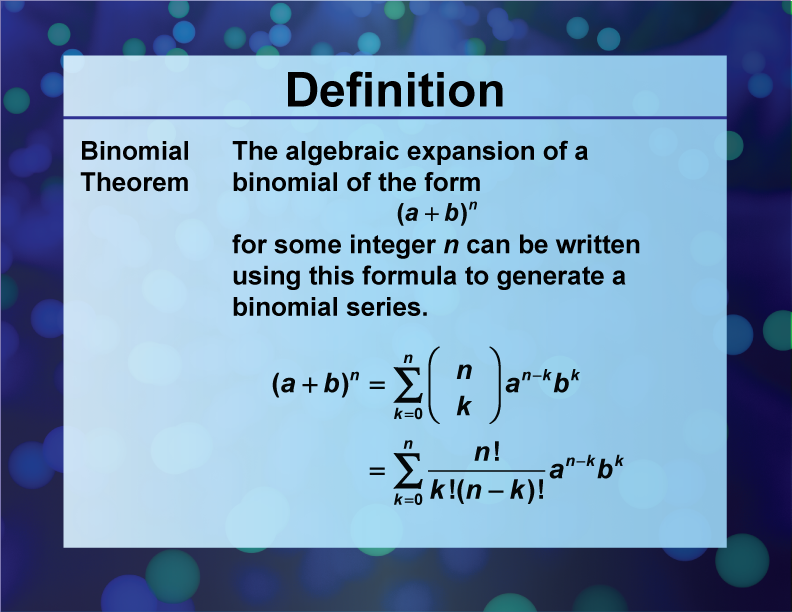
Display Title
Definition--Sequences and Series Concepts--Binomial Theorem
Display Title
Binomial Theorem

Topic
Sequences and Series
Definition
The binomial theorem describes the algebraic expansion of powers of a binomial.
Description
The binomial theorem is a fundamental theorem in algebra that provides a formula for expanding binomials raised to any positive integer power. This theorem is essential in various mathematical disciplines, including algebra, calculus, and probability theory.
In real-world applications, the binomial theorem is used in statistical analysis, particularly in the calculation of probabilities and in the field of combinatorics. It is also used in physics and engineering to solve problems involving polynomial expansions. Algebraically, the binomial theorem is expressed as

where

is a binomial coefficient.
Understanding the binomial theorem is crucial for math education as it provides a foundation for more advanced topics in calculus and algebra. It helps students develop skills in polynomial expansions and combinatorial analysis, which are essential for higher-level mathematics and various scientific fields.
For a complete collection of terms related to sequences and series click on this link: Sequences and Series Collection
| Common Core Standards | CCSS.MATH.CONTENT.6.SP.B.4, CCSS.MATH.CONTENT.HSF.IF.A.3, CCSS.MATH.CONTENT.HSF.BF.A.2, CCSS.Math.CONTENT.HSF.LE.A.2 |
|---|---|
| Grade Range | 6 - 9 |
| Curriculum Nodes |
Algebra • Sequences and Series • Series |
| Copyright Year | 2021 |
| Keywords | data analysis, arithmetic sequence, common difference, definitions, glossary terms, geometric sequence, common ratio |